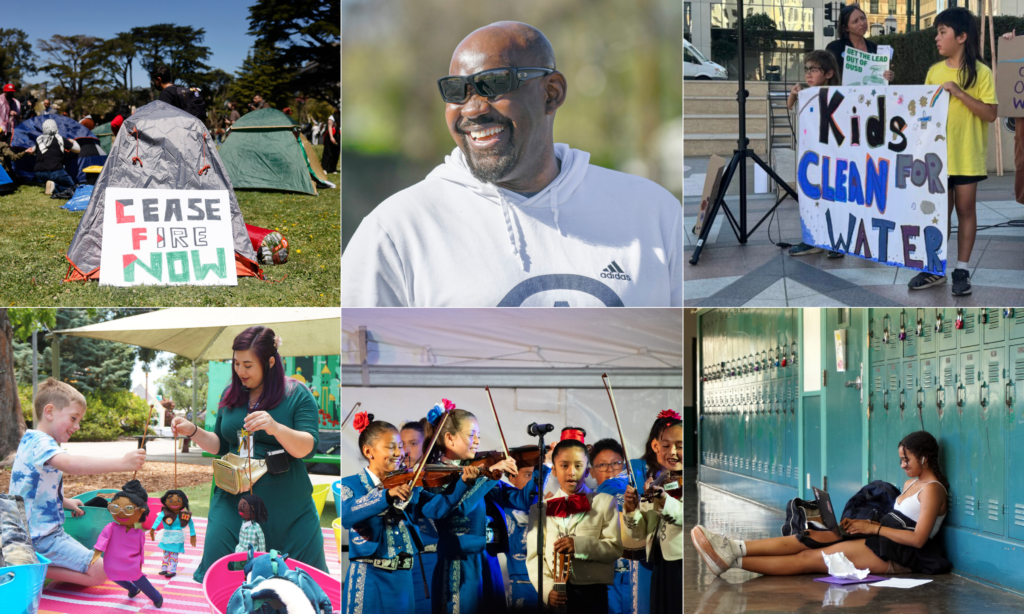In 2023, EdSource highlighted the work of fascinating, impactful people and innovative programs making waves in education across California.
As the year comes to a close, the EdSource staff shares some of their favorite features of 2023.


EdSource’s “Education Beat” podcast gets to the heart of California schools by highlighting stories from our reporters with voices of teachers, parents and students.
Here are 10 of our favorite podcast episodes from 2024. Take a listen:
In the 1974 case Lau v. Nichols, the U.S. Supreme Court decided that schools must take steps to make sure students who do not speak fluent English can understand what is being taught in their classrooms, whether through additional instruction in English as a second language or bilingual education. Here’s the story of how this case began and how it changed education, from the perspective of a teacher:
A growing body of research shows that having a Black teacher increases students’ scores on math and reading tests and increases the chance that they will graduate from college. California has been trying to recruit and retain Black teachers for years, but they’re still under-represented. Hear from a Black teacher about what’s keeping her peers from getting to and staying in the classroom:
Almost one-third of adults in California can do little more than fill out a basic form or read a very simple piece of writing in English. Many of them are immigrants. Experts say programs aimed at addressing poor literacy reach only a fraction of adults who need help. One way to reach them is to bring classes directly to the workplace. This episode highlights the story of one janitor:
As a wave of protests on university campuses called for a ceasefire in Gaza and for universities to divest from companies with military ties to Israel, student journalists emerged as crucial sources of information. Increasingly, student journalists are doing this work under the threat of arrest and violence.
When teachers noticed that children in Oakland preschool and kindergarten classrooms were not engaging in imaginative play or interacting with each other as much after the pandemic, staff at Children’s Fairyland, a local theme park, turned to an old favorite — puppets.
The West Contra Costa Unified School District promised back in 2019 that Stege Elementary School would get a complete redesign and remodel, to attract more students and more experienced teachers and turn around low test scores, high suspension rates and chronic absenteeism. But now, a group of teachers, staff and parents are suing the district, alleging that it failed to address severely poor building conditions and teacher vacancies. What happened?
This year, state lawmakers passed a bill to require public schools to restrict student cellphone use. A parent shares how she’s seen cellphones affect student interaction and increase bullying, and what she thinks about the efforts to restrict them:
Rigoberto Sánchez-Mejía has been taking music lessons with Harmony Project, a nonprofit music education organization in Los Angeles, for 12 years, since he was 5 years old. He credits them with putting him on a path to college and giving him a tool to calm down when life is too stressful.
Oakland Unified School District began this school year with some unsettling news: The drinking water in the district’s schools had dangerously high levels of lead. But lead testing hasn’t been required in California schools for the last five years. That means Oakland Unified is unusual among California school districts in that it knows that there’s a lead problem at all.
This November, 16- and 17-year-olds in two California cities, Berkeley and Oakland, were able to vote in school board elections. A high school junior reflects on the significance of this moment and the importance of civic engagement for teenagers: